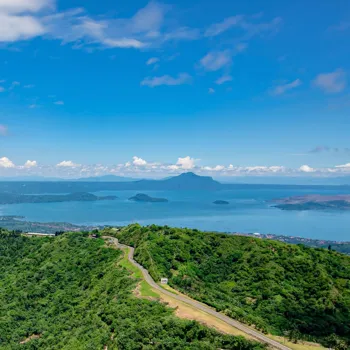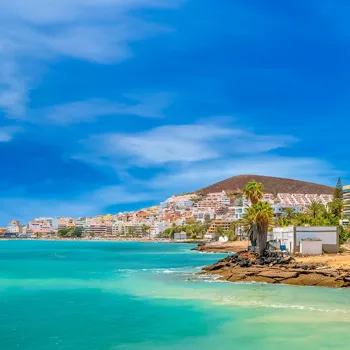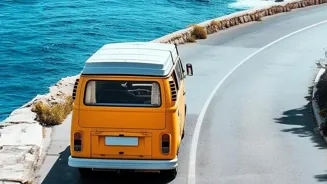Embarking on a solo adventure? Dive into our guide on crafting the perfect itinerary for a safe, enriching, and unforgettable journey. Read on!
Gone are the days when travelling solo was considered a bit
unusual. Today, more and more Indians are embracing the freedom and adventure of exploring the world on their own terms.

But before you pack your bags and book that flight, a little planning can go a long way in ensuring a safe, enriching, and unforgettable solo journey. Creating the perfect itinerary is key, and it doesn't have to be daunting.
This guide will help you navigate the process and craft a travel plan that suits your interests, budget, and comfort level. Let’s get started!
Defining Your Travel Style & Setting Realistic Goals:
Before diving into the nitty-gritty of destinations and activities, take some time to reflect on what you truly want from your solo trip. Are you seeking adventure, relaxation, cultural immersion, or a combination of all three?
Understanding your travel style will significantly influence your itinerary. Consider your interests: Are you passionate about history, art, nature, or food?
Think about your budget and how long can you stretch your money, this will directly impact which destinations are within reach and the types of experiences you can afford. Be honest about your comfort zone.
If you're a first-time solo traveler, starting with a destination that's relatively safe and easy to navigate is a wise choice. Don't try to cram too much into a short period. A well-paced itinerary allows you to truly savor each experience and avoid feeling overwhelmed.
Setting realistic goals is crucial for a fulfilling solo trip. This includes budgeting, time management, accommodation, and the purpose for taking the trip.
Choosing the Right Destination:
Once you're clear about your travel style, it's time to brainstorm destinations. India itself offers a plethora of options for solo travelers, from the serene backwaters of Kerala to the majestic Himalayas. Think about what kind of experience you're craving.

Mountain retreats like Himachal Pradesh or Uttarakhand offer breathtaking scenery and opportunities for trekking and spiritual exploration. Rajasthan’s heritage sites like Jaipur, Udaipur and Jodhpur are filled with culture and historical stories.
Coastal getaways like Goa or Pondicherry provide relaxation and a dose of beach vibes. Researching potential destinations is essential, read travel blogs, watch documentaries, and consult guidebooks to get a feel for the place.
Pay attention to safety ratings, local customs, and transportation options. Consider the time of year, what is your budget and the distance as it pertains to your travel needs. Talk to friends who have traveled solo or join online travel forums for insider tips and recommendations.
Crafting a Detailed Day-by-Day Plan:
With your destination in mind, it's time to create a detailed day-by-day plan. This doesn't mean you have to stick to it rigidly, but it provides a framework for your trip and helps you stay organized. Start by listing all the attractions and activities that interest you.

Prioritize them based on your must-see and would-be-nice-to-see list. Research opening hours, ticket prices, and transportation options for each location. Consider walking tours in cities, if available near the destination.
Factor in travel time between locations, especially if you're relying on public transport. Don't forget to allocate time for meals, rest, and spontaneous adventures. A good rule of thumb is to leave at least one day completely free for unplanned exploration.
Having a detailed plan reduces stress and allows you to make the most of your time. It also helps with budgeting and booking accommodations and activities in advance, especially during peak season or for popular attractions.
Accommodation & Transportation Logistics:
Securing safe and comfortable accommodation is paramount for solo travelers. Hostels are a popular option for budget-conscious travelers offering dorm rooms and private rooms, and more importantly, opportunities to meet fellow travelers.

Budget hotels and guesthouses provide a more private and comfortable experience, while vacation rentals such as Airbnb can be a great option for longer stays or if you prefer having your own space.
When booking accommodation, read reviews carefully and pay attention to the location, cleanliness, and security measures. Look for places that are well-lit, close to public transport, and have positive feedback from solo travelers. Plan your transportation in advance.
Research the best ways to get around your destination, whether it's by train, bus, metro, or taxi. Book transportation tickets in advance, especially for long-distance journeys, to avoid last-minute price hikes and ensure availability.
Safety First: Essential Precautions for Solo Travelers:
Safety should be your top priority when traveling alone. Before you depart, share your itinerary with a trusted friend or family member. This way, someone knows your whereabouts and can check in on you periodically.

Make copies of your passport, visa, and other important documents and store them separately from the originals. Keep digital copies of your documents stored securely in the cloud or on a password-protected device.
Invest in a travel insurance policy that covers medical emergencies, trip cancellations, and loss of belongings. Be aware of your surroundings when you are moving around, avoid walking alone in dark or deserted areas, and trust your instincts.
If something feels off, remove yourself from the situation immediately. Learn a few basic phrases in the local language, it can be helpful in emergencies or when trying to navigate around.
Budgeting and Managing Finances:
Creating a budget is essential for a stress-free solo trip. Start by estimating your daily expenses, including accommodation, transportation, food, activities, and miscellaneous costs. Research the average prices of food, transportation, and attractions in your chosen destination.

Add a buffer of 10-15% to your budget to account for unexpected expenses. Track your spending diligently throughout your trip using a budgeting app or a simple spreadsheet. Be mindful of ATM fees and currency exchange rates.
Inform your bank about your travel plans, so they don't block your credit or debit cards. Consider carrying a mix of cash and cards, but avoid carrying large amounts of cash. Look for free activities and attractions, such as walking tours or visiting local parks, to save money.
Cook your own meals occasionally if your accommodation has kitchen facilities. Budgeting and financial planning are essential to get the best out of the trip.
AI Generated Content. Glance/InMobi shall have no liability for the content













